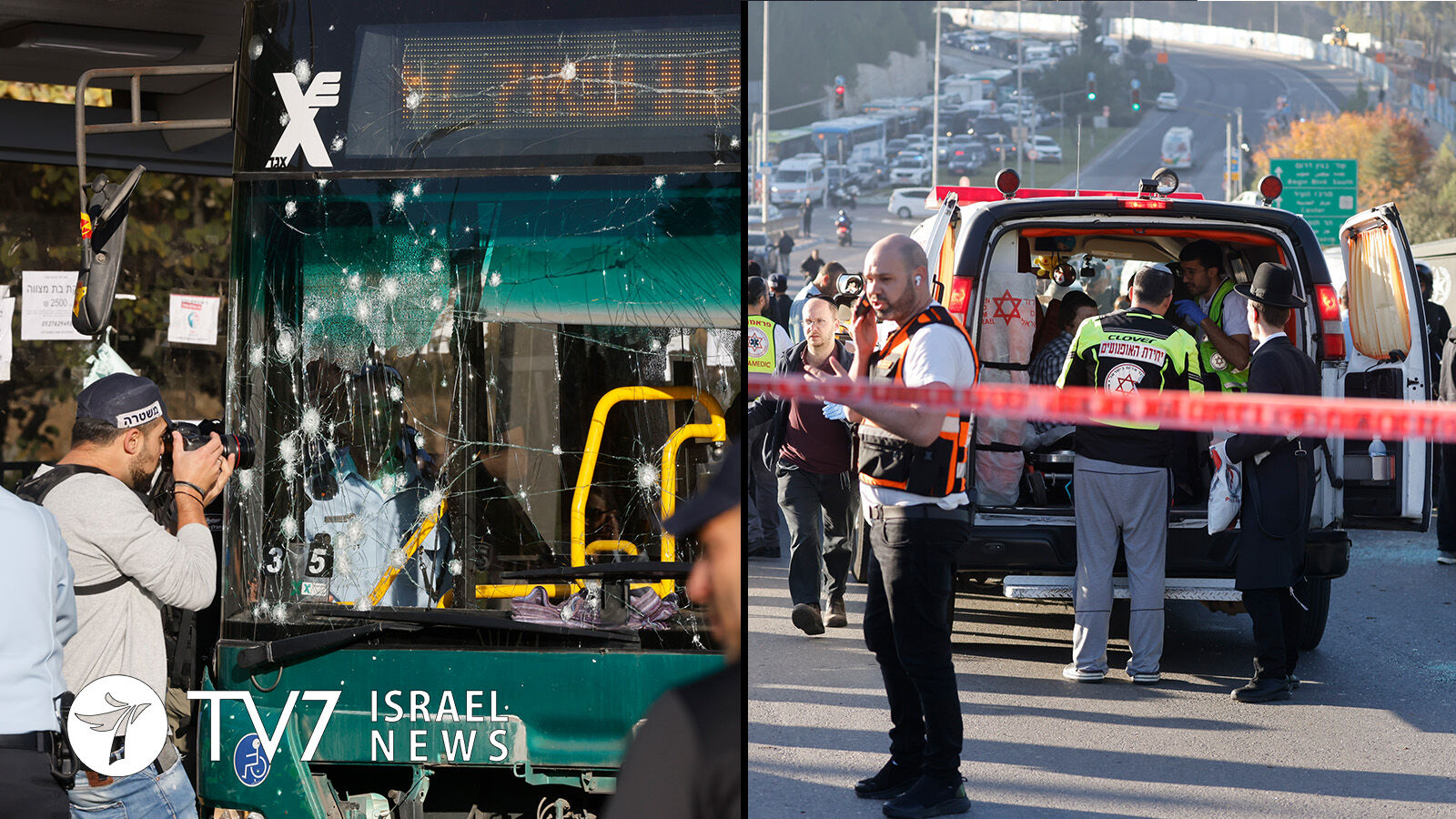Waiting For The Bus, Hoping It Won’t Come
By Amir Oren
Jerusalem is, sadly enough, quite used to terror attacks by Palestinians against uniformed personnel as well as civilian passers-by. The motives are always the same – rage against real or imagined threats to Moslem Holy Places on Temple Mount and resistance to Israel’s annexation of East Jerusalem and occupation of the adjacent West Bank. Shooting and ramming attacks, often lethal, are relatively frequent, especially at or near the Old City. They are always covered by the media, but seldom look like more than random events.
The two explosions which rocked Jerusalem out of its early weekday morning calm on November 23rd were different. Not because of the casualties – one teen-ager killed, dozens (including two holders of American passports) of citizens wounded. The circumstances were ominous, a prologue to a horror story.
The explosive charges were left in bags in bus stops, a few kilometres apart. An initial forensic investigation suggested that they included nails, aimed at maximum human destruction, and they were dropped of at the two sites the night before by a small terror squad – an underground cell. The explosions were activated by remote electronic signal, perhaps by a mobile phone (which is not necessarily traceble to a particular owner, if of a cheap discardable type).
This is a hallmark of a relatively sophisticated group, astute enough to evade alerting Israel’s vaunted Shabak and Unit 8200 Intelligence dragnets. Whether controlled or merely inspired by the established Palestinian organisations- Fatah, Hamas, Islamic Jihad – or emerging ones, such as “the Lion’s Den” which for a while this summer captured public imagination, they kept silent, neither indicating their intentions beforehand nor claiming credit afterwards. It can also be a local enterprise, unknown to any organisation, in which case the ability to conspire and take care of the logistics involved would be even more impressive.
The two ingredients which are most alarming are Jerusalem and buses. Almost a million people live, work or visit Israel’s capital daily. Many of them are Palestinian by nationality but Israeli – residents, not citizens – by virtue of inhabiting the west side of the security wall. Their documents and vehicle registration plates enable them to move freely around the city and indeed the entire country. A tiny minority may be recruited by a terror network, as distinct from the sudden stabbing, ramming or shooting attacks, but should they choose to take part in such activities, their interception would be more difficult. Jerusalem being within Israel proper, at least according to unilateral legislation, the military is usually supposed to stay out of security sweeps there, leaving them to police (including border patrol) forces and Shabak intelligence. Punitive measures, such as house demolitions, are also absent outside the boundaries of the West Bank, where they are justified by military necessity.
As for buses, they – when suicide bombers boarded them – were the weapons of choice for Palestinian terrorists in the 1990’s and then again in the next decade. Both substantially and symbolically, the torn and charred carcass of a green-painted bus was the emblem of Israeli vulnerability. It first undermined the Oslo process, premised on Palestinian security forces under Yasser Arafat fighting their anti-peace compatriots, helping to bring Binyamin Netanyahu to power. Later, under Ariel Sharon, such incidents, some of them in restaurants and other close meeting places, pushed a reluctant Israeli government to undertake a major military raid of the West Bank, “Operation Defensive Shield”, which responded to a public outcry but brought about a diplomatic setback – President George W. Bush declaring his condition-based support for a Palestinian State next to Israel.
It probably does not matter, to perpetrators, that many bus-drivers in Israel today, especially in and out of Jerusalem, are Arabs. Indeed, public transport, and the trucking industry, would grind to a halt if they were to make their living elsewhere. Of course, many riders on Jerusalem buses and light rail are also Palestinian. A bomb would hit all aboard, indiscriminately.
The fear in Israel following Wednesday’s bombing was that this may turn out to be the shape of things to come, only in a much worse form – on buses, not next to them, and with multi-fatalities horrendous results. A forceful Israeli response is virtually guaranteed. The fragile Palestinian Authority under the elderly Mahmoud Abbas would be under enormous pressure, perhaps even collapse – a turn of events the terrorists may have in mind.
All of that could take place regardless of Israeli governance and politics, but the time right now is especially sensitive, with Netanyahu asked by President Yitzhak Herzog, per the November 1st election results, to form a new government, whose make-up could give hardline parties to the right of Netanyahu’s likud key security portfolios and seats in the policy-making inner cabinet.
The very prospect of such an Israeli political leadership, coupled by the frustration at the local inactivity of a Biden Administration preoccupied with Russia and China, could lead to either more acts of desperation or their acceptance by a passive public.
The situation is thus unusually explosive, and may be one incident, one provocation, away from being set off. It is not pre-determined, extra efforts could still defuse it, at least for a while. But failing that, the next deafening noise in Jerusalem could regrettably herald the beginning of a new horrific era.
